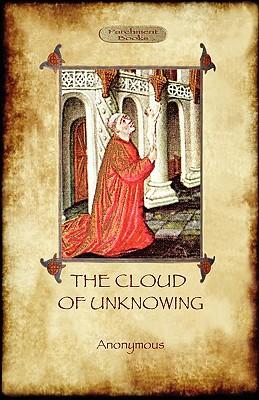'The Cloud of Unknowing' was written in the late 1300s and is recognized as a masterpiece of medieval mystical writing. The author, a monk who remains anonymous, describes to the reader (his unknown "ghostly friend") the techniques and discipline required to attain to union with God. The method is by no means orthodox with respect to medieval Church teachings, and requires the negation of normal reality, bound as it is to images and thoughts, a complete letting go of intellect so as to rise through the Cloud of Unknowing to spiritual enlightenment. The parallels with eastern religion are obvious and many have seen distinct echoes of Zen in the unknown writer's description of his trials and experiences on this path. But what sets the book apart from other manuscripts of this time is the delightful personality of anonymous author, his humanity and humor, and the clear, everyday prose he chooses to convey his spiritual truths. Written almost 700 years ago, 'The Cloud of Unknowing' still speaks directly to the deepest longings of humanity today.

'The Cloud of Unknowing' was written in the late 1300s and is recognized as a masterpiece of medieval mystical writing. The author, a monk who remains anonymous, describes to the reader (his unknown "ghostly friend") the techniques and discipline required to attain to union with God. The method is by no means orthodox with respect to medieval Church teachings, and requires the negation of normal reality, bound as it is to images and thoughts, a complete letting go of intellect so as to rise through the Cloud of Unknowing to spiritual enlightenment. The parallels with eastern religion are obvious and many have seen distinct echoes of Zen in the unknown writer's description of his trials and experiences on this path. But what sets the book apart from other manuscripts of this time is the delightful personality of anonymous author, his humanity and humor, and the clear, everyday prose he chooses to convey his spiritual truths. Written almost 700 years ago, 'The Cloud of Unknowing' still speaks directly to the deepest longings of humanity today.